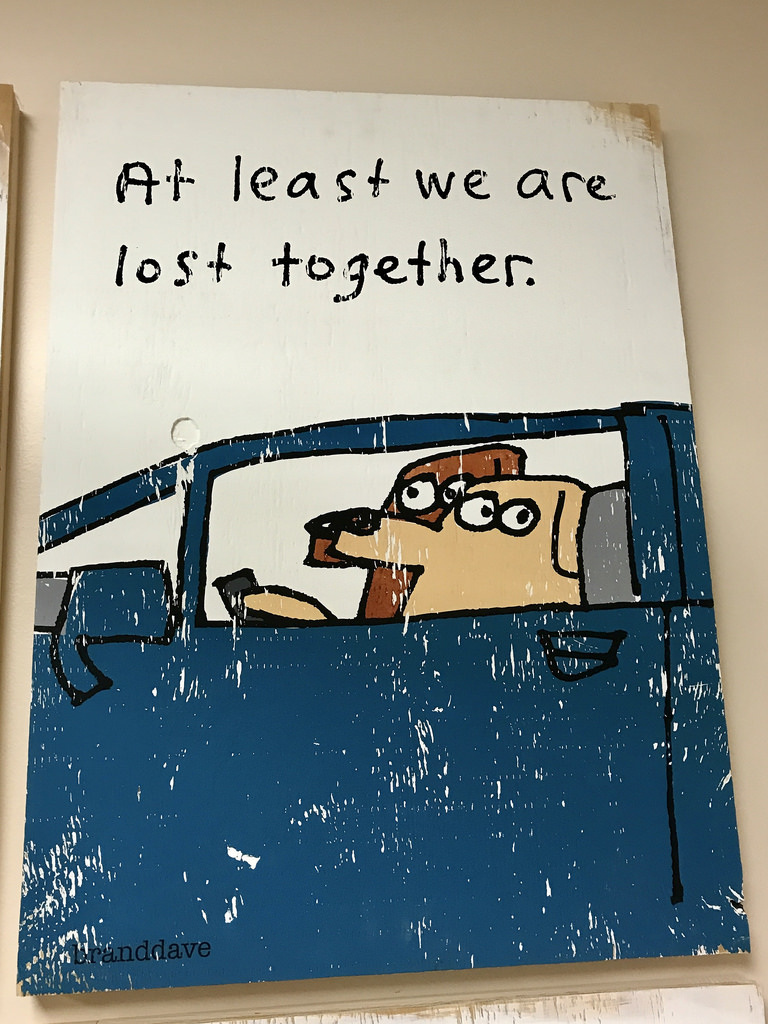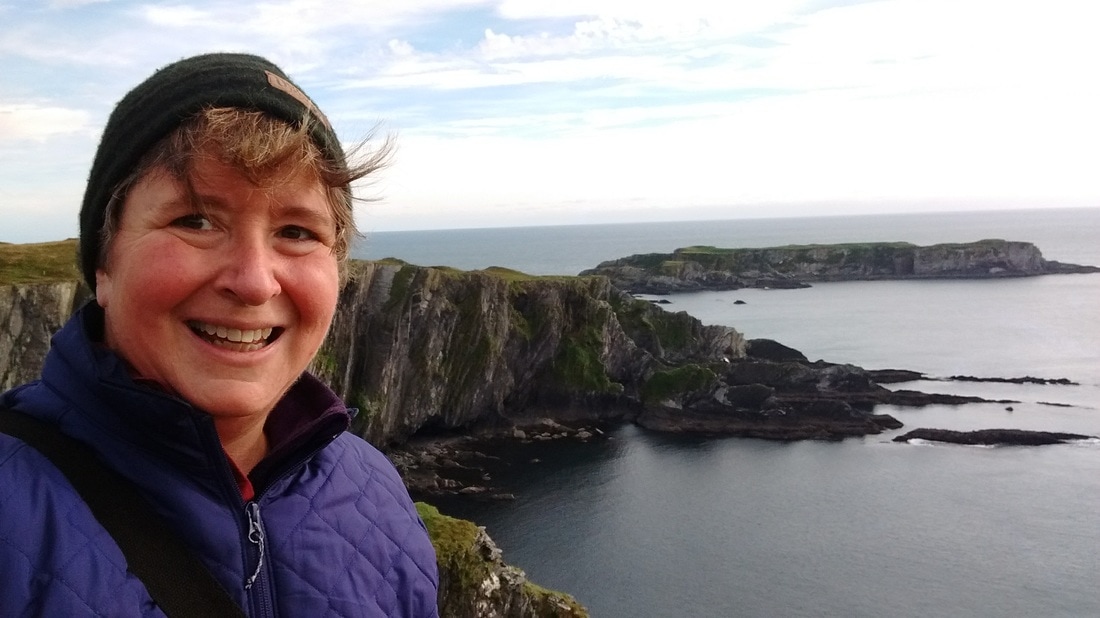WHAT PARKLAND HAS TO DO WITH YOUR RELATIONSHIP
Here in the US this week, we're absorbing the news of yet another mass shooting, this time in yet another school.
Survivors and their families are saying things like this:
"We're not surprised; we always thought he would be the one to shoot up the school."
"My daughter begs me everyday to let her stay home because she was afraid she would get shot at school."
"Our teacher's desk isn't big enough for all of us to hide behind when we go into lockdown, so four of my classmates were shot and two didn't make it."
We now live in a country in which these kinds of statements have become part of everyday life, a country in which "active shooter" and "swat team," and "semi-automatic" have become part of everyday vocabulary, even among children.
As a clinician, I am struck by the common roots of the psychopathy that creates human beings ---- predominantly male human beings --- who commit such atrocities: trauma, abuse, and toxic models of masculinity. As a sociologist, I am struck by the broader cultural variables that create the conditions of individual psychology that lead to such violence: anomie, or a sense of disconnection and aloneness; entitlement and frustration in a context of deepening economic divisions; the deterioration of families and communities; louder cultural narratives about blaming other victims; and, of course, easy access to the weapons of war that allow the broken to end the lives of others while claiming their 15 minutes of infamy.
You've heard all of this before.
One of the most surreal elements of these scenarios, however, goes little remarked: how it now seems "normal" that teenagers spend their time predicting who might "shoot up the school;" how it now seems "normal" that we prepare for "active shooter situations" in our workplaces; how it now seems "normal" to open the news and see distressed families waiting for the list of victims' names outside the site of a mass shooting.
In a social sense, this has become our new normal.
In a clinical sense, this new normal is not normal at all.
In 1999, when two teenagers walked into Columbine High School and began shooting, the event was so shocking that it became the focus of a spate of books and films. Today, because of our new normal, such events are daily news; if a movie were made about each of these events --- the Parklands and Orlandos and Las Vegases --- we could create an annual film festival from them, and each film would seem like a rerun of the last. What's interesting about that?
In toxic relationships, we often allow a new normal to emerge bit by bit. What we know to be good and right and healthy becomes eroded gradually --- more like a rising sea carves a new shoreline day by day, rather than one massive earthquake reconfiguring the landscape in one minute on a calm afternoon. If you're in a toxic relationship, you've observed this; if you've survived a toxic relationship and are reflecting on it and recovering from it, you can see how this process evolved --- and how, by looking the other way, over and over, you allowed yourself to accept a toxic new normal.
Just as we have relationships to other individuals, we have a relationship to our culture, our society, our country, the world ---- and we have responsibilities to these. It's important to remember the world before mass shootings in schools and malls and clubs became "normal." It's important to tell young people for whom this has always been part of the landscape that just as there was a past in which this was not thinkable, there can be a future in which it is unthinkable. And beyond remembering the possibility of a different kind of normal, it's important that we act. Just as it's important to end toxic dynamics in our individual lives, it's important to act to end toxic cultural and social dynamics. Explore the root causes. Explore the immediate mechanisms of violence. Take responsibility for creating the world in which we want to live.
You can convey this message. You can hold this space. On a micro level, reach out to other people to reduce their anomie and yours. On a macro level, stand for community, access to care, economic security, education, and an end to easy access to semi-automatic weapons.
If you've ended a toxic personal relationship, you have transferable skills, and the world needs you to use them now.
Cultivate connection. Hold on to hope. Act now and everyday to make the world a better place.
Survivors and their families are saying things like this:
"We're not surprised; we always thought he would be the one to shoot up the school."
"My daughter begs me everyday to let her stay home because she was afraid she would get shot at school."
"Our teacher's desk isn't big enough for all of us to hide behind when we go into lockdown, so four of my classmates were shot and two didn't make it."
We now live in a country in which these kinds of statements have become part of everyday life, a country in which "active shooter" and "swat team," and "semi-automatic" have become part of everyday vocabulary, even among children.
As a clinician, I am struck by the common roots of the psychopathy that creates human beings ---- predominantly male human beings --- who commit such atrocities: trauma, abuse, and toxic models of masculinity. As a sociologist, I am struck by the broader cultural variables that create the conditions of individual psychology that lead to such violence: anomie, or a sense of disconnection and aloneness; entitlement and frustration in a context of deepening economic divisions; the deterioration of families and communities; louder cultural narratives about blaming other victims; and, of course, easy access to the weapons of war that allow the broken to end the lives of others while claiming their 15 minutes of infamy.
You've heard all of this before.
One of the most surreal elements of these scenarios, however, goes little remarked: how it now seems "normal" that teenagers spend their time predicting who might "shoot up the school;" how it now seems "normal" that we prepare for "active shooter situations" in our workplaces; how it now seems "normal" to open the news and see distressed families waiting for the list of victims' names outside the site of a mass shooting.
In a social sense, this has become our new normal.
In a clinical sense, this new normal is not normal at all.
In 1999, when two teenagers walked into Columbine High School and began shooting, the event was so shocking that it became the focus of a spate of books and films. Today, because of our new normal, such events are daily news; if a movie were made about each of these events --- the Parklands and Orlandos and Las Vegases --- we could create an annual film festival from them, and each film would seem like a rerun of the last. What's interesting about that?
In toxic relationships, we often allow a new normal to emerge bit by bit. What we know to be good and right and healthy becomes eroded gradually --- more like a rising sea carves a new shoreline day by day, rather than one massive earthquake reconfiguring the landscape in one minute on a calm afternoon. If you're in a toxic relationship, you've observed this; if you've survived a toxic relationship and are reflecting on it and recovering from it, you can see how this process evolved --- and how, by looking the other way, over and over, you allowed yourself to accept a toxic new normal.
Just as we have relationships to other individuals, we have a relationship to our culture, our society, our country, the world ---- and we have responsibilities to these. It's important to remember the world before mass shootings in schools and malls and clubs became "normal." It's important to tell young people for whom this has always been part of the landscape that just as there was a past in which this was not thinkable, there can be a future in which it is unthinkable. And beyond remembering the possibility of a different kind of normal, it's important that we act. Just as it's important to end toxic dynamics in our individual lives, it's important to act to end toxic cultural and social dynamics. Explore the root causes. Explore the immediate mechanisms of violence. Take responsibility for creating the world in which we want to live.
You can convey this message. You can hold this space. On a micro level, reach out to other people to reduce their anomie and yours. On a macro level, stand for community, access to care, economic security, education, and an end to easy access to semi-automatic weapons.
If you've ended a toxic personal relationship, you have transferable skills, and the world needs you to use them now.
Cultivate connection. Hold on to hope. Act now and everyday to make the world a better place.

